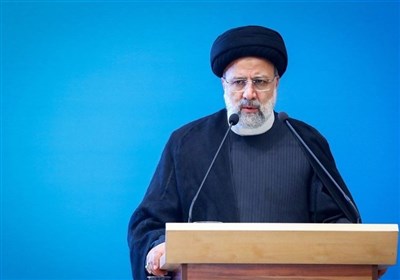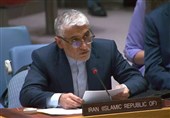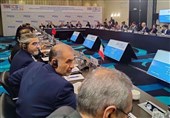French Voters Looking for Change: British Academic
TEHRAN (Tasnim) – A British professor of French politics and modern history said French people’s lack of desire to vote in favor of the Socialist Party and the Republicans in the first round of voting shows they are disenchanted with the country’s two major parties and are looking for change.
“There is widespread disenchantment in France with traditional politics and the rejection of the Republicans party and the Socialist party is partly a reflection of the desire for change,” Professor Jim Shields told the Tasnim News Agency.
Professor Shields is head of French Studies at Aston University. Having studied in Glasgow, Toulouse, Zaragoza and Lisbon, and taught at the Universities of Glasgow, Caen, Aston and Warwick, Professor Shields returned to take up the Chair of French in 2010. His research interests lie in French politics and modern history.
Following is the text of the interview.
Tasnim: French presidential candidate for the Front National (FN) party Marine Le Pen and the En Marche! Movement’s hopeful Emmanuel Macron are campaigning for the weekend's election run-off. Representatives from the country’s two major parties, namely the Socialist Party and the Republicans failed to get enough votes in the first round of voting. What is your take on this?
Shields: There is widespread disenchantment in France with traditional politics and the rejection of the Republicans party and the Socialist party is partly a reflection of the desire for change. It is also explained, more circumstantially, by Francois Fillon’s legal problems during the campaign and Benoit Hamon’s very poor performance as a presidential candidate. Their failure opened an unexpected opportunity for Emmanuel Macron who now seeks to redefine the French political landscape around his centrist movement En Marche!
Tasnim: Do you believe that France’s domestic policy will change under Le Pen or Macron? What kind of policy the two may adopt towards the EU if elected?
Shields: Macron offers the vision of an open, confident, liberal France harnessing diversity at home and continuing to play its role within the EU, NATO and the wider international community. Le Pen offers the opposite: the vision of a closed, defensive France fearing diversity at home and retreating behind protectionist barriers against the threats from globalisation and Europe. So each would take France down a very different path both domestically and internationally – and this election will determine which of those two paths the majority of French voters want. In domestic policies, Macron wants to cut public spending, cut public-sector jobs, loosen the 35-hour work week and bring flexibility to a rigidly regulated jobs market as a way of delivering impetus to the economy. Le Pen opposes him on all of these points and offers a protectionist economic policy that would levy extra tax on the employment of foreign workers, levy tariffs on certain imports and increase welfare spending on a basis of national priority (“French first”). Le Pen would also set a strict annual limit on immigration, make deportations easier and residency and nationality harder.
Le Pen would try to renegotiate France’s EU membership with a view to leaving the EU; she would put a renegotiated settlement to referendum in France and push for withdrawal from the single currency and a return to the franc. Macron would negotiate to deepen France’s ties with the EU and to deepen EU integration through introducing a euro-zone budget and finance minister and developing a permanent European military command. So the two are offering opposite choices for France’s future within or outside the EU.
Tasnim: There are few similarities between the outlook of Macron, a centrist, and Le Pen of the far right. Their differences over foreign and defense policy are stark. What type of foreign policy will the two adopt, towards the Middle East in particular, if assumes office?
Shields: Foreign policy has not played a great part in this election but it is clear that Le Pen offers the vision of a more isolationist foreign policy with France withdrawing from the integrated military structure of NATO and building closer relations with Russia in order to resolve the conflict in Syria and defeat international terrorism. Macron leans more towards continuity in French foreign policy in cooperation with EU states and NATO primarily.





